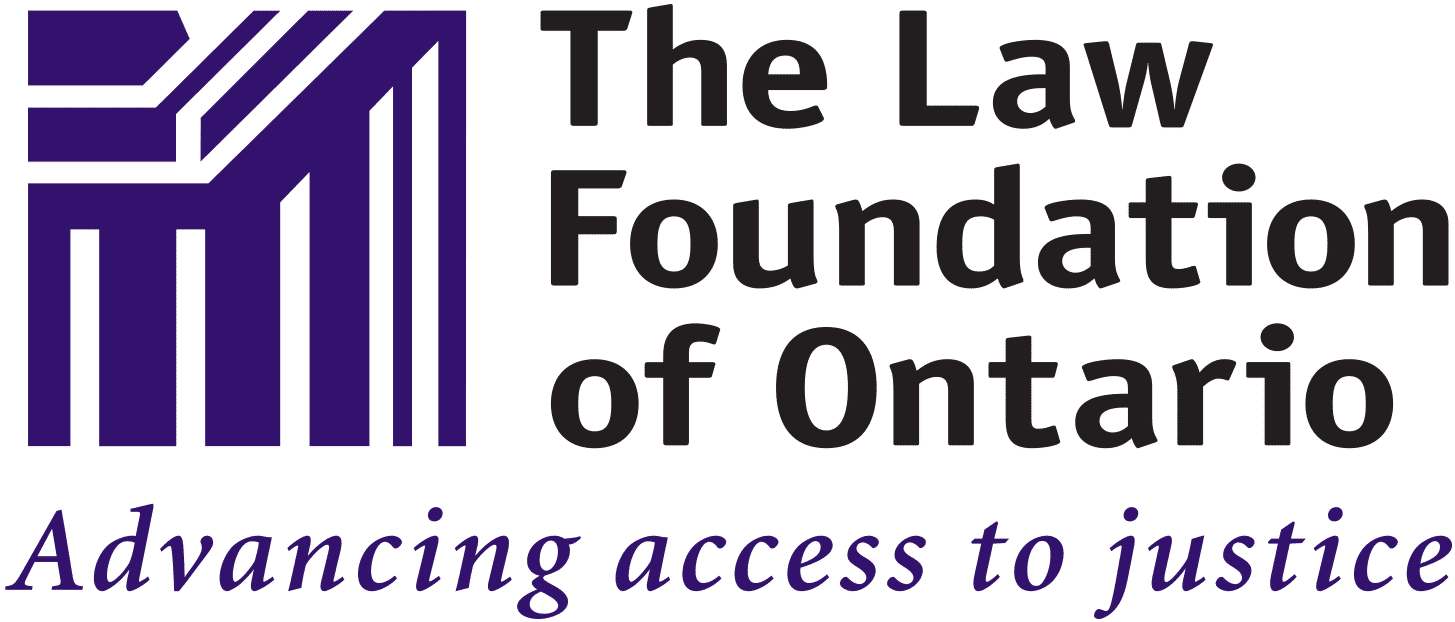Where can someone get legal advice for their employment-related civil legal issues?
If your client has experienced an employment-related issue that seems like it might be a legal issue (e.g., not being paid for work done, being fired without notice, or being discriminated against by an employer) there are different ways these issues can be dealt with. It’s important that your client seek legal advice on these options to understand which might be best for them.
Some places your client can get help include:
- Pro Bono Ontario Hotline
- Free 30-minute call with a legal service provider
- Toll-free number: 1-855-255-7256
- Hours: Monday-Friday, 9:30-11:30AM & 1:00-3:30PM
- Visit www.probonoontario.org/hotline/
- Law Society Referral Service
- Free 30-minute call with a legal service provider
- Visit www.findlegalhelp.ca
- Toll-free crisis line for those unable to use the online service (e.g., in custody, in a shelter, remote community, etc.): 1-855-947-5255
- Hours: Monday-Friday, 9:00 AM-5:00 PM
- Community Legal Clinic
- Available in some cases—check your local clinic’s website for more information on whether they provide employment-related services.
- Workers’ Action Centre
- Offers a free hotline for those looking to understand their rights at work (e.g., pay, overtime, leave, notice, etc.)
- Toll-free number: 1-855-531-0778
- Hours: Monday-Friday, 12:00 PM-5:00 PM
- Visit https://workersactioncentre.org/
- Workers’ Health and Safety Legal Clinic
- Provides legal advice and representation to low-income non-unionized workers on issues like unlawful dismissals and WSIB claims
- Toll-free number: 1-877-832-6090
- Email: whslc@lao.on.ca
- Hours: Monday-Friday, 9:00 AM-5:00 PM
- Visit https://workersactioncentre.org/
- Injured Workers Community Legal Clinic
- This clinic offers free legal advice and information about WSIB claims
- Toll-free number: 1-833-461-2411
- Email: info_iwc@lao.on.ca
- Visit https://injuredworkersonline.org/
- IAVGO Community Legal Clinic
- This clinic offers free legal advice, information and representation to injured workers
- Toll-free number: 1-877-230-6311
- For migrant workers: 1-866-521-8535
- Visit https://iavgo.org/
- Human Rights Legal Support Centre
- The Centre provides free services to people who have experienced discrimination and want legal advice or assistance on addressing the discrimination and/or filing an application with the Human Rights Tribunal.
- Toll-free number: 1-866-625-5179 or 1-866-612-8627 (TTY)
- Hours: Monday-Wednesday & Fridays, 9 AM-5 PM, Thursday 2 PM—6 PM.
- Visit https://www.hrlsc.on.ca/en/contact-hrlsc/contact-information
- Office of the Worker Adviser
- Provides free information and resources to non-unionized workers about workplace insurance issues and workplace health and safety reprisals. Also provides representation on appeals to WSIB or WSIAT.
- Toll-free number for workplace insurance issues: 1-800-661-6365
- Toll-free number for health & safety issues: 1-855-659-7744
- Visit http://www.owa.gov.on.ca/en/about/Pages/Getting-Help-from-the-OWA.aspx
- JusticeNet
- List of local service providers for low-income individuals who do not meet Legal Aid’s eligibility requirements. These local professionals will provide services at reduced fees.
- Visit www.justicenet.ca/ (Note: There is a fee to use this service and access the list of legal professionals—$25 in 2021)
How You Can Help:
- Step 1: Help your client put together documentation ahead of their conversation with the legal service provider. It’s helpful to have things like pay stubs, their employment contract, tax documents, their Record of Employment, memos, emails, or medical information (if applicable).
- Step 2: Help them write down important information ahead of time so they can make good use of their time with the legal service provider.
- Brief description of what happened, when it happened and with who
- Amount of money they are owed (if any)
- Length and type of employment (e.g., contract, casual, full-time, union, etc.)
- What solution(s) they are looking for
- Any questions they might have
- Step 3: Help them find a private and quiet place to speak with the legal service provider if they will be speaking over the phone.

